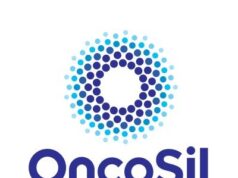
Metastatic colorectal cancer patients treated first-line with SIR-spheres Y-90 resin microspheres more likely to become candidates for potentially curative liver surgery, the REsect study shows.
Surgeons’ blinded assessment of pre- and post-treatment CT scans of patients with previously unresectable colorectal cancer liver metastases treated in the SIRFLOX study were presented at the 12th annual European-African Hepato-Pancreato-Biliary Association meeting in Mainz, Germany (24 May 2017).
Adding selective internal radiation therapy (SIRT) with SIR-spheres Y-90 resin microspheres to first-line FOLFOX-based chemotherapy was associated with a statistically significant gain in potentially curative liver resectability, an independent, international panel of expert liver surgeons has reported.
“We performed a blinded evaluation of the extensive radiological database of the recently-reported SIRFLOX study to compare potential liver resectability at baseline and follow-up,” said Benjamin Garlipp, the principal author of the REsect study and a liver surgeon at Otto-von-Guericke-Universität, Magdeburg, Germany.
“We found that while resectability increased from baseline to follow-up in both the chemotherapy only arm and the chemotherapy + SIRT arm of the SIRFLOX study, the increase was significantly more pronounced in patients receiving the combination treatment, 38.1% of these were resectable on the basis of their liver CT scan at follow-up, compared to 28.9% of the patients receiving chemotherapy only (p<0.0001). This is an important finding because surgical resection is the mainstay of potentially curative treatments for these patients, and there is an increasing body of evidence suggesting that it can prolong their lives, even though most of them eventually recur.”
Of the 472 SIRFLOX study patients whose pre- and post-treatment liver CT scans were evaluable by the REsect surgeons, 228 had received first-line mFOLFOX6 chemotherapy (± bevacizumab), while 244 were treated with the combination of chemotherapy and SIR-Spheres Y-90 resin microspheres. There was no significant difference in the resectability of the patients’ liver metastases at baseline (11% vs. 11.9%; p=0.775). In a second analysis, of the patients who were deemed still unresectable at baseline, significantly more patients in the Y-90 resin microspheres group had resectable liver metastases compared to those who received chemotherapy alone (31.2% vs. 22.7%; p<0.0001).
The REsect study was conducted by a panel of 14 hepatopancreatobiliary surgeons from leading medical centres in Belgium, France, Germany, Italy, The Netherlands, Spain, the UK and the USA. Five surgeons performed independent, blinded analyses of 100 baseline and follow-up scans chosen at random from the 472 cases to be reviewed. Blinded analysis of the remaining scans was conducted of 22–25 cases at a time by three surgeons working independently and chosen at random from the nine other members of the REsect panel. The reviewers were blinded to patient identifiers, visit (baseline or follow-up), treatment and clinical information, as well as being blinded to the other reviewers’ assessments. A patient was deemed to be resectable or unresectable by majority agreement (≥3 of 5 surgeons or ≥2 of 3 surgeons).
“As a surgeon, it is always my aim to offer the option of a potentially curative liver resection to patients with metastatic colorectal cancer. We know that in many patients with metastatic colorectal cancer, the liver is the only organ with cancer deposits, and converting patients from a stage where resection of the disease is not possible into one where potential curative resection becomes an option again has an enormous impact for patients. This retrospective analysis suggests that SIRT with Y-90 resin microspheres could be a means to achieving resection for more of these patients,” Garlipp emphasised.













